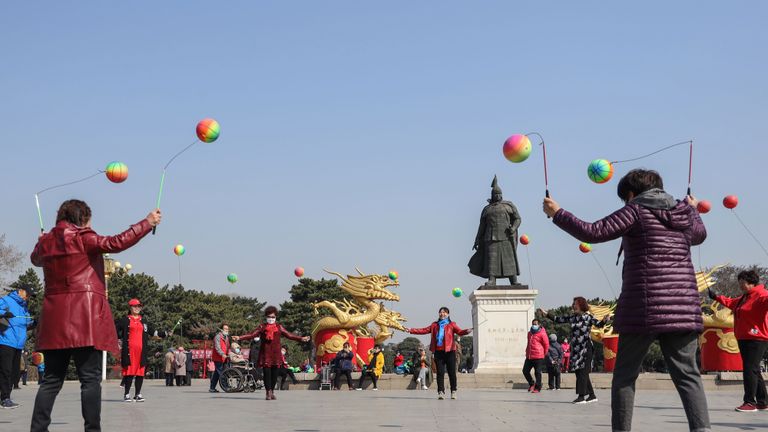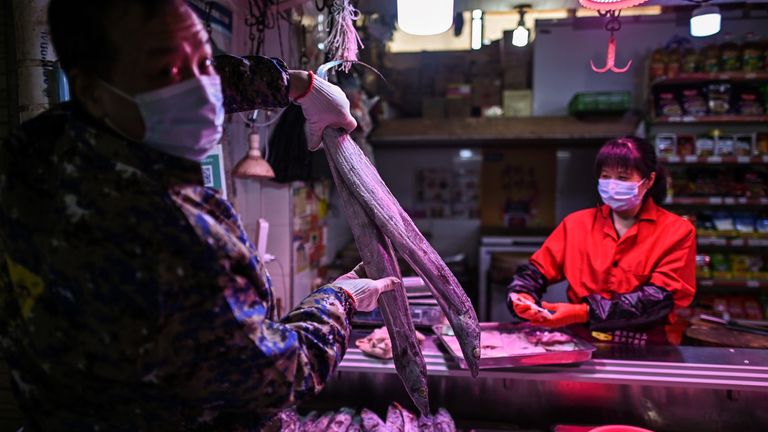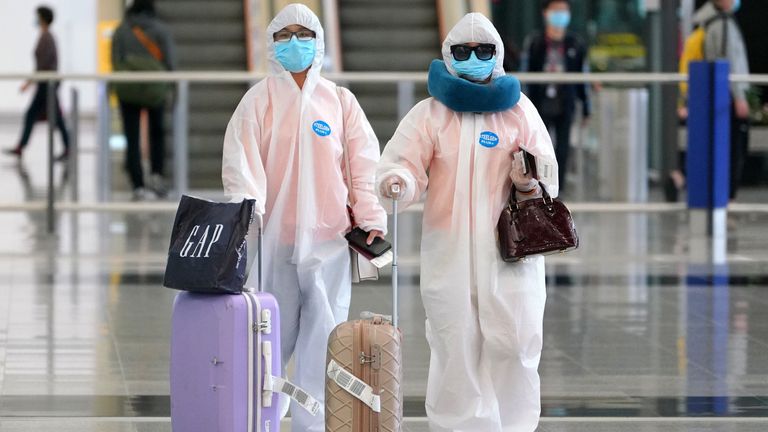Coronavirus: China reports no new COVID-19 deaths for first time during outbreak
China reports no new COVID-19 deaths, as some-160 current and former world leaders want help to stop a second wave of the crisis.
Tuesday 7 April 2020 15:12, UK
China has reported no new coronavirus deaths for the first time during the outbreak.
China's National Health Commission said it had 32 new confirmed cases, a drop of seven from Monday.
It said all new COVID-19 infections were from people who had returned from overseas.
Authorities began releasing reported daily deaths and cases in January, not long after it gave rise to the global pandemic.
Daily new deaths linked to coronavirus have stayed in single digits for weeks, sometimes hitting just one.
The country has officially recorded 3,331 deaths and 81,740 cases, but its government has been criticised for potentially under-reporting numbers by experts who are concerned it has prioritised restarting the economy over beating the virus.
China is worried foreign travellers could cause a second outbreak in the country.
It has closed its land and river borders with Russia after the discovery of 59 new cases among Chinese citizens returning home via the crossing near Vladivostok.
All Chinese residents who arrive in the border region aboard Russian domestic flights will be forced to undergo a 14-day quarantine, according to a notice posted on the website of the Chinese consulate in Vladivostok.
It said that only special passholders will be allowed to travel on the Russian side of the border - but it was not clear whether they would be able to cross into China.
Meanwhile, Hong Kong has extended its initial two-week entry restrictions on non-residents indefinitely.
Non-citizens flying from overseas to Hong Kong will be denied entry, and those coming from mainland China, Macao and Taiwan will be barred from entering if they have been abroad in the past 14 days.
The move comes as the number of Covid-19 cases in Hong Kong rose to 915.
China is not alone in working to prevent a second wave of infections.
More than 160 current and former global leaders have urged the world's 20 major industrialised nations to approve $8bn (£6.5bn) in emergency global health funding to hasten the search for a vaccine, cure and treatment for Covid-19 and prevent a second influx.
:: Listen to the Daily podcast on Apple Podcasts, Google Podcasts, Spotify, Spreaker
In an open letter to the governments, the leaders, ministers, top executives and scientists also called for tens of billions to support countries with weaker health systems and vulnerable populations, as well as at least $148bn (£120bn) for developing countries to fight the crisis.
They also asked the international community to waive this year's debt repayments from poorer countries.
While a directive from the G20 leaders' summit on March 26 recognised the gravity and urgency of the health and economic disaster, the letter said "we now require urgent specific measures that can be agreed on with speed and at scale".
The group called for a global pledging conference, coordinated by a G20 task force, to commit resources to meet emergency needs.
The 165 signatories included former UN secretary-general Ban Ki-moon, 92 former presidents and prime ministers, the current prime ministers of Ethiopia and Bangladesh, Sierra Leone's president and philanthropist George Soros.





